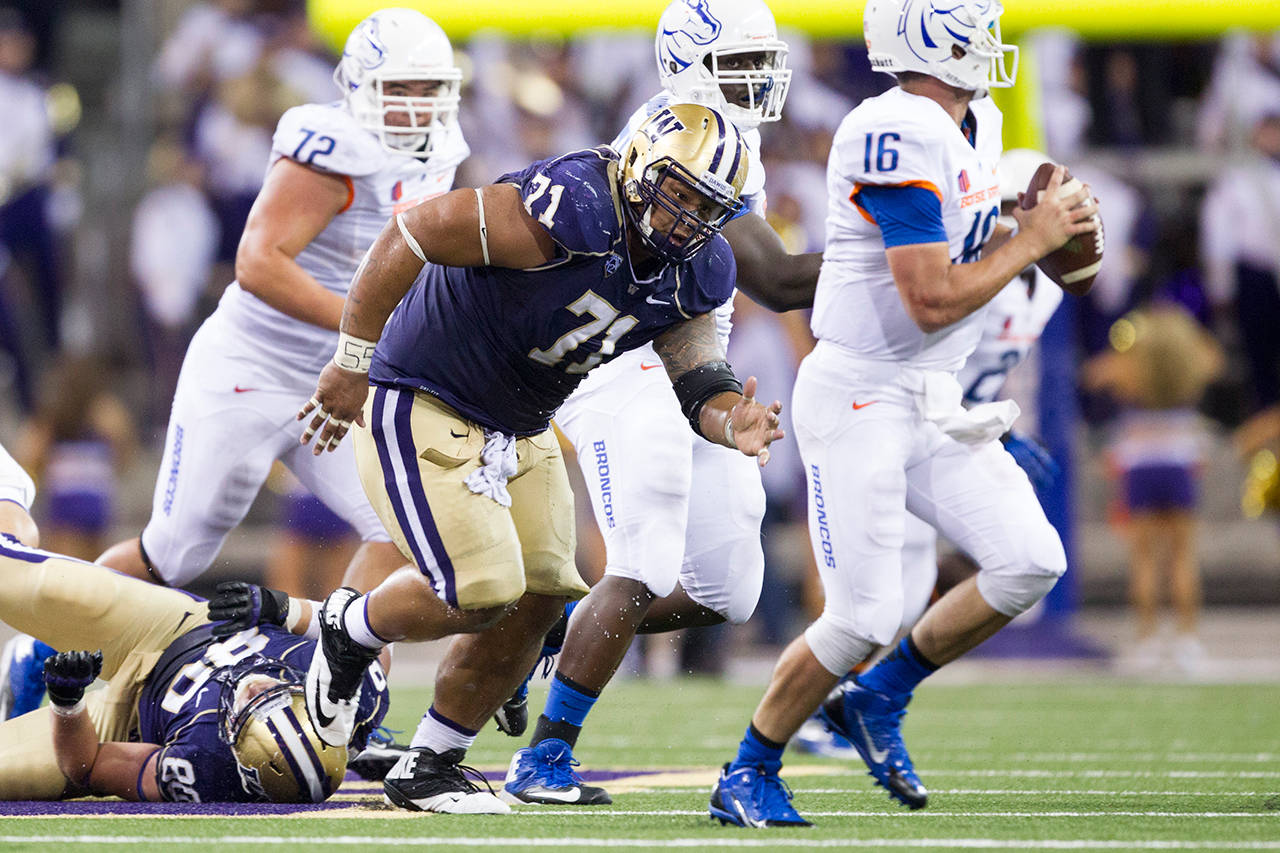The National Collegiate Athletic Association’s (NCAA) football season concludes Monday with the College Football National Championship game.
And while the University of Washington, Washington State University and Eastern Washington University football teams recently wrapped up their seasons, next year’s returning Huskies, Cougars and Eagles, as well as all other student-athletes in Washington state, may have something to look forward to.
Rep. Drew Stokesbary, R-Auburn, has introduced legislation that would permit student-athletes enrolled in Washington’s colleges to earn compensation. Under the bill, it would be a violation of the Washington State Consumer Protection Act and state antitrust laws for the NCAA or an athletic conference, like the Pac-12 Conference, to prohibit Washington students from being paid for their services or to punish the team or school of an athlete who was paid.
“Major college sports is big business. Each year, college athletics generates more and more revenue. The salaries of coaches, athletic directors, conference officials and bowl officials are exploding, while networks shell out record amounts to schools and conferences for their broadcasting rights, and colleges and the NCAA sell more and more team merchandise. Yet, the athletes whose hard work creates this multi-billion dollar enterprise remain forbidden from receiving any compensation,” Stokesbary said.
House Bill 1084 would allow student-athletes to be compensated by any party for services they provide up to the fair market value of the services, and would also permit student-athletes to retain an agent. Both of these activities are generally prohibited by existing NCAA rules.
“If a shoe company wanted to pay one of University of Washington running backs $50,000 to appear in a television commercial, House Bill 1084 would permit that, and it would be an explicit, per se violation of our state’s consumer protection act for the NCAA to sanction the player, his team, or the university,” Stokesbary said.
“The NCAA argues that it shouldn’t be subject to antitrust laws because ‘amateurism helps ensure that colleges sports remain an integrated component of the scholastic experience,’ yet obtaining a paid job during college is a core component of the ‘scholastic experience’ for most non-athlete students,” Stokesbary explained.
“The NCAA’s cartel-like behavior harms students by suppressing the market for their services and harms the fans by making arbitrary decisions about athletes’ eligibility that affect their teams’ performance and the fan experience. This bill would ensure the NCAA’s anti-competitive actions are fully subject to Washington’s consumer protection and antitrust laws,” Stokesbary added.
Stokesbary also addressed potential criticisms of the bill.
“This legislation does not require a school, or any other party, to pay student-athletes, so it does not threaten ‘non-revenue’ sports in any way. Furthermore, while the value of an athlete’s scholarship is indeed tremendous, the value that many athletes contribute to the NCAA far exceeds their cost of tuition. It’s simply wrong for the NCAA to leverage the enormous value created by college athletes while systematically denying them the right to share in all the value they create for the NCAA and its member institutions,” said Stokesbary.
In addition to arguments involving fairness, he said there may be benefits to paying players.
“If they are free to earn income while still in college, players may stay in school longer, thereby increasing graduation rates and making NCAA events more competitive. It will also greatly reduce the pressures that have led to some of the (alleged) behind-the-scenes corruption by agents, boosters and even gamblers,” Stokesbary said.
The bill will likely be referred to the House Civil Rights and Judiciary Committee.
Stokesbary is the House Republican Floor Leader, serves as the lead Republican on the House Appropriations Committee and also sits on the House Finance Committee.
The Washington State Legislature convenes on Monday, Jan. 14 and runs 105 consecutive days.


